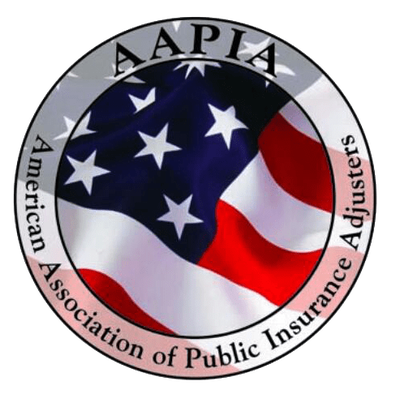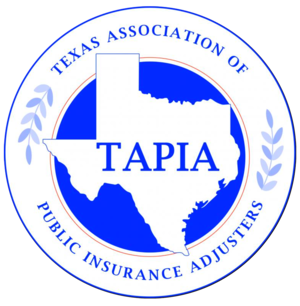Choosing a public adjuster to handle your insurance claim can be a critical decision. The right adjuster can help you navigate the complexities of the claims process and ensure you receive fair compensation for your damages.
However, making the wrong choice can lead to delays, frustrations, and even inadequate settlements. In Texas, avoiding common mistakes when selecting a public adjuster is essential to protect your interests and secure the compensation you deserve.
That’s why in this blog, we’ll share 8 of the most commonly made mistakes when selecting a public adjuster in Texas, helping you get the best insurance claim possible.
1. Verify Credentials
Before hiring a public adjuster, it’s imperative to verify their credentials to ensure they are fully licensed and certified in your state. This verification process involves checking with state regulatory bodies to confirm the adjuster’s licensing status and any disciplinary actions against them. By ensuring that the adjuster meets all legal requirements, policyholders can have confidence in their ability to handle their insurance claims competently and ethically.
2. Assess Experience
Experience is a critical factor in selecting a public adjuster, demonstrating the adjuster’s ability to effectively navigate the complexities of insurance claims. When assessing experience, look for adjusters who have successfully handled claims similar to yours in terms of property type, damage severity, and insurance coverage. Requesting specific examples of past claims and their outcomes can provide insight into the adjuster’s expertise and track record of achieving favorable settlements for their clients.
3. Review Reputation
The reputation of a public adjuster is a reflection of their professionalism, integrity, and ability to deliver results. Researching the adjuster’s reputation involves seeking testimonials, reviews, and references from past clients. Online platforms, industry associations, and referrals from trusted sources can provide valuable insights into the adjuster’s reputation and the quality of their services. Pay attention to patterns of positive feedback and any red flags raised by past clients to make an informed decision about hiring the adjuster.
 4. Evaluate Resources
4. Evaluate Resources
A public adjuster’s resources and support network play a crucial role in the efficiency and effectiveness of the claims process. Assessing resources involves evaluating the adjuster’s access to expert consultants, including contractors, engineers, and forensic specialists, who can provide professional assessments of property damages. Additionally, consider the adjuster’s technological capabilities, such as claims management software and digital documentation tools, which streamline claim processing and enhance communication between the adjuster and the client.
5. Transparent Communication
Transparent communication is essential for maintaining trust and clarity throughout the claims process. Look for a public adjuster who prioritizes open and honest communication, providing regular updates on claim progress, developments, and decisions. Effective communication channels, including phone calls, emails, and in-person meetings, should be established to ensure the client is informed and involved in key decisions regarding their claim. Clear communication also facilitates collaboration between the adjuster, the client, and other stakeholders involved in the claims process.
6. Negotiation Skills
Strong negotiation skills are crucial for achieving favorable outcomes in insurance claim settlements. When evaluating a public adjuster’s negotiation skills, consider their ability to advocate for the client’s interests and effectively negotiate with insurance companies to maximize claim payouts. Look for adjusters who demonstrate strategic thinking, assertiveness, and professionalism in negotiating settlement terms, including coverage limits, depreciation values, and claim denials. A track record of successful negotiations and favorable settlements can attest to the adjuster’s proficiency in securing optimal outcomes for their clients.

7. Comprehensive Approach
A comprehensive approach to claim handling involves thorough assessment, documentation, and strategic planning to support the client’s claim. When choosing a public adjuster, seek professionals who take a methodical approach to evaluating property damages, documenting losses, and preparing claim submissions. The adjuster should conduct detailed inspections of the property, collaborate with expert consultants to assess damages accurately and compile comprehensive claim documentation supported by evidence.
8. Client-Centric Focus
A client-centric approach is characterized by personalized attention, empathy, and support throughout the claims process. When selecting a public adjuster, prioritize professionals who prioritize the needs and concerns of their clients above all else. Look for adjusters who take the time to understand the client’s unique situation, promptly address their questions and concerns, and provide guidance and support tailored to their needs.
Choosing the right public adjuster can make all the difference in the outcome of your insurance claim. By avoiding common mistakes such as neglecting to check credentials, choosing based solely on price, and overlooking communication skills, you can ensure a smoother claims process and a fair settlement. So, when you need reliable and experienced assistance with your insurance claim in Texas, Oklahoma, Georgia, or beyond, turn to Morgan Elite Specialist Services.
As a trusted public adjuster in Texas, Oklahoma, and Georgia, we are here to advocate for your rights and guide you through the claims process with professionalism and expertise. Visit our website for a complimentary consultation and discover how we can help you maximize your insurance claim settlement.










